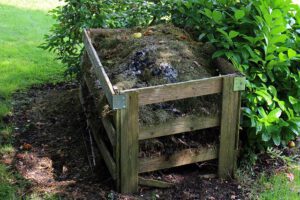What is the difference between mineral and organic fertilizers?
With the ever-growing popularity of organic gardening, you may be wondering what the difference is between mineral and organic fertilizers.
Here’s a quick guide by chappy the gardener to help you make the best choice for your garden.
Fertilizer Menu
Organic fertilizers are made from plant-based materials such as compost and manure. Mineral fertilizers, on the other hand, are made from rocks and minerals. They are often used in gardens because they provide more consistent results than organic fertilizers. Introduction: Fertilizers can be either organic or inorganic.
What are organic fertilizers?
Organic fertilizers are made of living organisms or their by-products.
Organic fertilizers are made of living organisms or their by-products. The most common organic fertilizers are manure, compost, and green manures. Animal manures come from cows, horses, chickens, sheep, and pigs. They all have different nutrients in them, so you should choose the manure according to what kind of plants you are growing. Compost is made of decomposed organic matter like leaves, grass clippings, and kitchen scraps. It is a great source of nitrogen, phosphorus, potassium, and other micronutrients. Green manures are crops that are grown specifically to be turned into compost or mulch.
What are inorganic fertilizers?
Inorganic fertilizers are made of minerals or synthetic chemicals.
Inorganic fertilizers are made of minerals or synthetic chemicals. They provide essential nutrients to plants, such as nitrogen, phosphorous, and potassium. Inorganic fertilizers can be either solid or liquid. Solid inorganic fertilizers are usually composed of a single nutrient, while liquid inorganic fertilizers contain multiple nutrients.
Inorganic fertilizers are popular because they are affordable and easy to use. They are also available in a variety of formulations, which allows gardeners to customize their fertilizer program according to their specific needs. However, inorganic fertilizers can also be harmful to the environment if not used properly.
How do organic and inorganic fertilizers work?
Organic fertilizers release nutrients slowly, while inorganic fertilizers release nutrients quickly.
Inorganic fertilizers dissolve quickly and release their nutrients all at once. This can be too much for plants and can cause them to burn. Organic fertilizers release their nutrients slowly, which gives the plants time to use them correctly. This also means that the plants will need to be watered less often, since they will not be using up all of the water to try and get to the nutrients in an inorganic fertilizer.
Is mineral fertilizer organic?
Mineral fertilizers are often thought of as being synonymous with inorganic fertilizers, but this is not always the case. Some mineral fertilizers are made from organic materials. The two main types of mineral fertilizers are organic and inorganic. Organic mineral fertilizers are made from plant or animal byproducts, while inorganic mineral fertilizers are made from minerals such as nitrogen, phosphorus, and potassium.
There's a big difference between mineral and organic fertilizer: Organic fertilizers are made from organic matter—dead plant or animal parts. Mineral fertilizers, on the other hand, are made from inorganic materials, like rock or sea minerals. Organic fertilizers provide slow-release nitrogen, phosphorous and potassium, which helps plants grow big and strong. Mineral fertilizers provide fast-release nitrogen that can burn plants if not used correctly. Despite the difference in nutrient release, both types of fertilizer are essential for healthy plants.
What are examples of mineral fertilizers?
Mineral fertilizers are composed of one or more minerals that are essential plant nutrients. The three primary macronutrients that plants need to thrive are nitrogen (N), phosphorus (P), and potassium (K). There are many different types of mineral fertilizers, but they all share the common goal of providing plants with the essential nutrients they need to grow. Some mineral fertilizers, such as ammonium sulfate and potassium sulfate, are inorganic compounds that contain only one nutrient. Other mineral fertilizers, such as 10-10-10 fertilizer, are composed of multiple nutrients and are often referred to as balanced or complete fertilizers.
When choosing a mineral fertilizer for your garden, it is important to consider the specific needs of your plants. For example, if your plants need a lot of nitrogen, you would want to choose a fertilizer that is high in nitrogen content.
Why is mineral fertilizer bad?
Mineral fertilizers are a necessary part of modern agriculture, and their use has increased in recent years. However, there is growing evidence that their overuse may be causing significant environmental damage. Excessive application of mineral fertilizers can cause pollution of water supplies with nitrates and phosphates, and can also lead to the development of harmful algal blooms. These blooms can produce toxins that contaminate drinking water and kill fish. In addition, fertilizer runoff can cause extensive damage to coastal wetlands and estuaries.
In conclusion, organic fertilizers are made of organic matter such as manure, while mineral fertilizers are made of inorganic materials such as nitrates and phosphates. Organic fertilizers release their nutrients slowly, while mineral fertilizers release their nutrients quickly. Organic fertilizers are less likely to burn plants than mineral fertilizers. Organic fertilizers are also better for the environment, because they break down and return their nutrients to the soil. Mineral fertilizers can pollute water supplies if used improperly.
Menu
Helps Us Grow – Share If You Like





